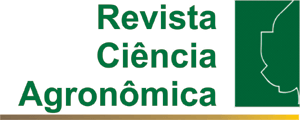Mocó cotton was the most important crop in Northeastern Brazil. Local varieties had been developed before governmental breeding programs, which should be identified and preserved as a genetic resource. The aim of this work was to select SSR markers which can be used to monitor gene flow from herbaceous to mocó cotton plants, using non transgenic upland cotton as a pollen source. Unique mocó cotton feral populations were identified in the state of Rio Grande do Norte, and mother plants and their seeds were collected. Allele frequencies were studied among fifteen plants from these populations using 64 SSR primer pairs. Ten SSR markers, with alleles exclusive to mocó or upland genotypes, were selected to monitor gene flow by paternity analysis (BNL3627; 2960; 2572; 3261; 3398; 3948; 3502; 3646 and CIR 094; 097). The collected seeds had none of the upland cotton alleles. The absence of exclusive alleles from upland cotton in the offspring showed that gene flow to mocó cotton was absent or lower than the analysis could detect. Among the mother plants, the number of homozygous individuals at four polymorphic loci was greater than expected, showing that reproduction occurs preferentially by self-fertilization or crossing among related individuals. Paternity analysis is an accurate measure of gene flow, and the methodology can be used for monitor these populations or others. Preservation of the plants is spoiled mainly by drought.
Biosafety; Molecular markers; Genetic resources




